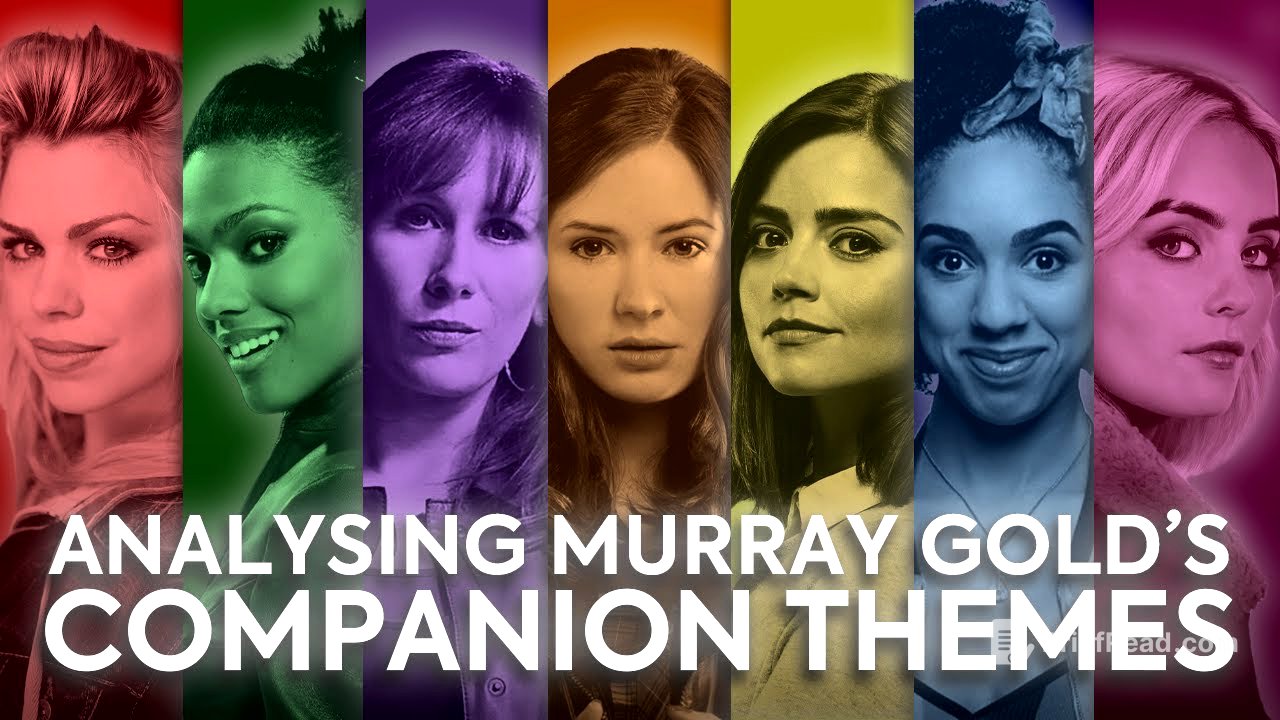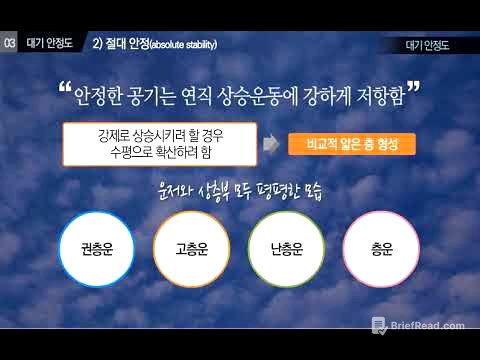TLDR;
This video analyzes Murray Gold's musical themes for Doctor Who companions, building on a previous analysis of the Doctor's themes. It explores how these themes reflect the companions' personalities, journeys, and key moments in the series, highlighting musical techniques and recurring motifs.
- Rose's theme reflects her journey from uncertainty to confidence.
- Martha's theme shares similarities with the Doctor's but has a more gentle and hopeful tone.
- Donna's theme is fun and bouncy, reflecting her bold personality, but also has subtle, mature variations.
- Amy's theme has a fairy tale quality, reflecting her childlike sense of wonder.
- Clara's theme is light and breezy, with a storybook feel.
- Bill's theme is bright and optimistic, with a Latin feel.
- Ruby's theme is a melancholic waltz, reflecting her search for her past.
Intro [0:00]
The video introduces a follow-up to a previous analysis of Murray Gold's themes for the Doctors, this time focusing on the companion themes from Doctor Who. It suggests watching the original Doctor's theme analysis for context, as it will reference some of those pieces.
Rose's Theme [0:30]
Rose's theme begins hesitantly, mirroring her initial lack of purpose. The music grows in confidence, reflecting her character's journey throughout the series. The theme features sparse instrumentation, primarily piano and strings, with a melancholic melody. It transitions from 4/4 to 3/4 waltz time, a signature Gold uses for companion themes. The theme is used in many of Rose's defining moments, including her goodbyes and reunions with the Doctor. Initially, Judy Gardner insisted on using Rose's theme for her appearance in "The End of Time" instead of a song written for Ten. It's also used during Mickey's departure in "The Age of Steel," highlighting Rose's importance in that moment.
Martha's Theme [2:22]
Martha is presented as a contrast to Rose, with a clear career path as a medical student and a large family. However, both share an irresistible urge to explore time and space. Martha's theme shares similarities with "The Doctor Forever," starting with a solo vocal line and strings, building to include other instruments like electric piano. The pieces are in the same key and tempo, with similar melody lines. Martha's theme is gentler and more soothing, with hopeful and reflective tones. It remains in 3/4 time throughout. The theme feels inquisitive and soulful, with bluesy notes and a beautiful section featuring vocals, strings, and brass, sharing melodic similarities with "Song for Ten". Unlike Rose's theme, Martha's theme is used extensively throughout Series 3 and her return appearances.
Donna's Theme/A Noble Girl About Town [4:48]
Donna is introduced as a bold and outspoken character. Her main theme is a fun, bouncy piece that accentuates her larger-than-life personality. The music is slapstick-sounding, driven by a plucky double bassline with jazzy flourishes from piano, strings, and brass, and an over-the-top melody. It has a rumber feel with accidentals that create a comedic sound. A revamped version in Series 4 features more percussion and a fuller arrangement, with a bossa nova feel. While some find it weaker due to its primarily comedic use, the main motif appears in a more subtle manner in the 60th-anniversary specials, reflecting Donna's growth.
A Dazzling End [7:05]
"The Dazzling End" is an orchestral rock piece used for Donna's fate in "Journey's End." It features a simple baseline, electric guitar chords, and string lines. The music builds in dynamics, becoming majestic, conveying both the salvation and sacrifice of Donna. The piece has a band sound, possibly influenced by Muse.
The Rueful Fate of Donna Noble [8:09]
For Donna's goodbye, another orchestral rock instrumentation is used. It starts with painful electric guitar chords and eerie whistling, reminiscent of "Doomsday." A percussion line kicks in, symbolizing Donna's impending fate. Melancholic strings rise, creating a sad but triumphant feel as Donna's greatest moments are shown. The music drops out, leaving a heartbeat before a piano and strings coda that echoes the Doctor's theme, mirroring the Doctor-Donna split.
Amy's Theme [9:08]
Series 5 is described as a fairy tale season, with Amy and the Doctor's story paralleling Peter Pan and Wendy. Amy's theme returns to the vocal, piano, and string instrumentation of Rose and Martha's themes, with a sweet, fairy-tale quality. The main section has a lullaby feel, aided by the vocal lead. It shares stylistic similarities with Rose's theme, reflecting Amy's journey of leaving home and experiencing the wonders of the universe with the Doctor. A darker section appears later, utilizing piano arpeggios from "Madman in a Box" with flattened notes, creating a switch from F major to F minor. This theme wasn't used until "The Beast Below."
Little Amy [11:10]
First used for young Amelia in "The Eleventh Hour," this theme recurs throughout Amy's run. It features fairy tale vibes with glistening chimes and lullaby vocal melodies over soft, dreamlike strings, homing in on childlike innocence. The first section is in 3/4 time, creating a drifting, swaying feel. Ominous chords lead to repeated descending scales that build in pitch. Like "Madman in a Box," it uses cascading piano melodies, evoking a sense of falling. This theme, "Madman in a Box," and "I Am the Doctor" are all written in F major or D minor, creating melodic and harmonic crossover.
Clara? [12:34]
Clara is portrayed as a bright and shining character. Her theme begins with a repeated piano arpeggio, with a sweet woodwind and strings melody dancing over the top. It's light and breezy, in 3/4 time with a waltz feel. Some have linked it to the bridge of "Belle" from Beauty and the Beast. A chromatic build reminds some of "Let's Go Fly a Kite" and Mary Poppins, fitting the storybook Disney-esque motif. Clara's theme appears as diegetic music in "How Bent," played by the Doctor on electric guitar, giving it a mellow folk feel.
Bill's Theme [14:35]
Bill is instantly endearing, charming, inquisitive, and unapologetically human. Her theme lacks an official version due to the absence of a Series 10 soundtrack. The analysis uses the original version from "The Pilot." The piece is in A major, with a bright, happy, optimistic sound. It begins with a playful piano melody and percussion before moving to a playful bass groove with a distinct Latin feel, due to the instrumentation, accidentals, and a tresillo rhythm. Striped-back sections include a female choir, reminiscent of Martha's theme, showing Bill's deeper soul. A build with strings and bass moving up the scale underneath a repeated broken chord is also present. A live version from the Series 10 finale countdown Q&A is more orchestral and cinematic, with emphasis on strings and woodwind, sounding like John Williams.
The Life of Sunday [17:33]
Ruby is a bright, exuberant character who seems wise beyond her years. Having grown up with her mom fostering babies, she has developed a maternal side. She is questioning and searching for the truth about her past. Her theme, unveiled at the 60th-anniversary concert, is described as gorgeous. Another companion theme in 3/4 time, it leans into the waltz feel, inspired by Chopin. It's almost sad that "Rogue" didn't focus more on Ruby, as the theme would fit a Regency period setting. Despite Ruby's youthful character, the theme is sober, melancholic, and mature, delving beneath the surface to find what is underneath her vibrant exterior. Written in G minor, it has a somber tone and a poetic sadness, reflecting Ruby's story as a foundling yearning for the truth about her birth mother. The piano is the main voice, supported by strings, brass, and woodwind, adding a sense of the serene. Tempo changes and chromatic runs add dramatic grandeur. It appears as diegetic music, played by Ruby herself in "Universe," a song she wrote for a friend going through a breakup.









